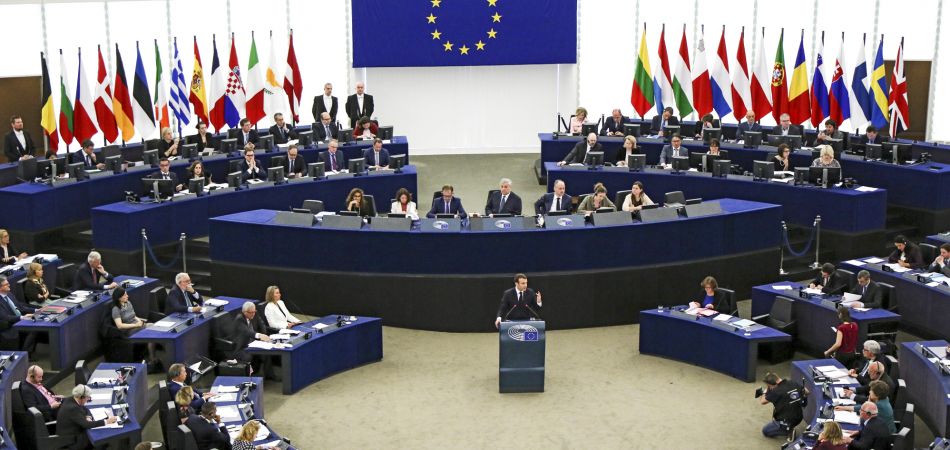With the next European Parliament (EP) elections scheduled to be held on 6-9 June 2024, all eyes are on the rising tide of right-wing populism, signaling a potential turning point in European politics. Right-wing parties and leaders are becoming increasingly dominant in national settings across many Member States, and chances are they are going to increase their presence in the EP. The far-right is already in power in some countries, such as Hungary’s Fidesz and Poland’s Law and Justice (PiS)[1]. In others, traditional center-right parties are forming coalitions with more radical segments of the right, as in Italy, Finland, Romania, Bulgaria, Slovakia, and Latvia. The spread and strengthening of right-wing populism is one of the most visible trends in European politics today and is already impacting European Union (EU) policy.
Trying to anticipate how this surge of right-wing populism in Member States will affect the outcome of the EP elections, and, consequently, Europe’s standing in international politics remains a challenge. Even though the parliament holds a secondary role in foreign policy compared to other EU institutions, these elections serve as a critical indicator of the broader European political climate. Therefore, understanding the ongoing political shifts is essential due to their potential impacts on Europe’s international position, particularly regarding critical agendas for the populist right, such as climate and migration policies.
Predictions show that the two main political groups in the EP – the center-right wing European People’s Party (EPP) and the center-left wing Progressive Alliance of Socialists and Democrats (S&D) – will likely continue to lose seats, as in the last two EP elections, in 2019 and 2014 (Cunningham, Hix & Dennison, 2024; POLITICO, 2024). The question lies in which political group will be the third largest in the parliament: the right-wing European Conservatives and Reformists (ECR), the far-right wing Identity and Democracy (ID)[2], or the centrist Renew Europe (RE) – which is expected to lose seats (Cunningham, Hix & Dennison, 2024; POLITICO, 2024). Nevertheless, predictions expect the ECR and ID groups together to account for 25 percent of the members of the EP (MEPs), and have more seats combined than the EPP or the S&D for the very first time (Cunningham, Hix & Dennison, 2024). Furthermore, it would not come as a surprise if we see the emergence of a “populist right coalition” of Christian democrats (EPP), conservatives (ECR), and radical right MEPs (ID).
It is important to note that coalitions in the EP tend not to be the result of formal agreements – as is often the case for national parliaments – but are made by political groups issue by issue. In the case of a populist right coalition, we could expect a political impact on two areas: civil liberties, justice and home affairs, and the environment. On civil liberties, justice, and home affairs, this coalition could have major implications for EU migration and asylum policies, as well as border management policies. Since populists often advocate for policies that prioritize national sovereignty and security, migration is often framed as a scapegoat for societal challenges, playing into fears and insecurities of Europeans to bolster support for their populist agenda.
In response to these dynamics, the EU is compelled to adapt its discourse and practices to accommodate the growing influence of the populist right and avoid stagnation. This entails an observation of a technocratic trend in European politics, particularly in the migration agenda, where emphasis is placed on expertise and efficiency, aiming to navigate diverse (and sometimes opposite) interests while prioritizing effectiveness. While this approach may offer a seemingly “neutral” foundation for policy implementation in contested areas, it also raises concerns regarding democratic accountability and the exclusion of diverse perspectives in decision-making processes. To understand this tendency, first, we must understand the context and characteristics of this new right populism surge.
RIGHT-WING POPULISM IN THE EUROPEAN UNION
In recent decades, European politics have shifted to the right, at least since the neoliberal turn of social-democratic parties in the 1990s and the security hysteria after the 9/11 attacks. The EP elections have reflected these trends: in 2009, rising Euroskepticism emerged as a late response to the Maastricht Treaty and the 2004 enlargement. The 2014 elections were marked by the rise of populism, fueled by the Great Recession and the Euro crisis. However, it was the 2019 elections that reflected the prominence of the populist radical right, which has been gaining strength across Europe since the 1990s (Mudde, 2019). The so-called “refugee crisis” of 2015 further amplified the influence of populist far-right politics, leading to the mainstreaming of authoritarian, nativist, and populist ideologies across the continent.
Here, populism is understood as a mixture of ideology and discursive strategy that articulates the will of the “pure people” against the “corrupt elites”. As a concept, populism is a vague understanding of democracy as a “government by the people” (Pelinka, 2013). Hence, right-wing populist movements often challenge the system of checks and balances and the “unfairness” of representative indirect democracy. According to Mudde (2023, 2019), populism is “illiberal democratic” because it fundamentally rejects any type of limitation or control on the “will of the people”, leading to a kind of “majority extremism”. Because of this distorted understanding of democracy, populists convey intermediate (or representative) political actors and institutions as part of the corrupt elite that usurps the power of the “true people”. This leads to criticism of international institutions and norms, such as the promotion of universal human rights or the protection of social minorities.
In the European context, the EU bureaucracy is often seen as part of this global corrupt elite that hinders the will of the people. That is why populist right-wing parties are usually Euroskeptics, as they demand more freedom for the Member States and less control from the EU. However, since the Brexit fiasco, some Euroskeptic parties have tuned down their rhetoric to leave the EU, and are now advocating for a “change from within” the Union – as is the case for Brothers of Italy (FdI) and the National Rally (RN) parties. Instead of advocating for an exit from the EU, these parties have skillfully pivoted towards influencing EU policies and shaping the supranational agenda to align with their nationalist ideologies. This change is also part of the strategy of right-wing populist parties to reach power.
Accordingly, even though right-wing populism is still markedly nationalistic, there has been a surge of “meta-populism” within the EU. In other words, far-right parties and leaders are now collectively advocating a vision of Europe as “an exclusionary cultural space based on its Hellenistic and Christian heritage to better oppose Europe and its people to a threatening Islam” (Lamour, 2024, p. 3). The rise of right-wing populism within the EU, that is, in the European Parliament, might be an indicator of a “Europeanization” of right-wing populism. There is reason to believe that a meta-populism trend is developing within the EU, in which “us” – “the pure people” – is gradually transforming to encompass a “European identity” alongside many different national identities, in opposition with foreign non-Europeans (Lamour, 2021).
Populist right-wing parties across Europe have long centered their political discourses on the defense of national sovereignty and the prevalence of the “true people”. Yet, in the context of the EU, these parties have had to navigate a complex political terrain, one that requires strategic adaptation rather than outright rejection. The different variations of the far-right and the traditional right in Europe are in the process of developing a common European identity by constructing common enemies, such as migrants and Islam. Even if many right-wing populist parties remain committed to the defense of the nation-state and adapted to a Eurosceptic discourse, the idea of a “Europe of regions” can be found throughout the greater European far-right populist family (Casaglia et al., 2020).
This meta-populist discourse is based on what Mudde (2007) has named “nativism”, that is, the idea that the nation-state should be inhabited exclusively by natives and that non-natives are threatening its integrity. Instead of focusing solely on the nation-state, this nativism now refers to “Europe” as a whole. This entails a double exclusion for migrants and refugees, that are both non-nationals and non-Europeans. Furthermore, some argue that the anti-migration narrative has evolved into a “clash of civilizations” narrative that, in the context of the Israel-Hamas war, has emphasized friction between Islam and the West (Caulcutt & Vinocur, 2023). With 3 months to go until EU voters elect a new Parliament, this mix of a migration crisis with resurgent fears of political Islam proves to be a challenge to mainstream parties.
THE TECHNOCRATIC TURN IN MIGRATION POLICIES
As right-wing populist parties gain influence and push for a nationalistic and nativist agenda within the EU, particularly in the areas of migration policies and border management, there has been a noticeable trend towards a technocratic approach to foreign policy issues. On the one hand, this trend can be evaluated as a pragmatic response to the rise of right-wing populist parties. Because technocratic solutions are perceived as pragmatic and efficient, allowing decision-making to be based on technical expertise rather than political ideology, it seems to be an effective strategy to accommodate nationalistic demands while still maintaining a semblance of EU unity. On the other hand, this façade of pragmatism hides a process of “depoliticization” of issues that echoes deeply in the day-to-day lives of European citizens (such as migration policies), which can lead to a disconnect between EU institutions and citizens, eroding trust in the democratic legitimacy of the EU’s actions at the global stage.
The political agreement of the New Pact on Migration and Asylum, achieved between the EP and the Council in December 2023, embodies this shift by emphasizing a pragmatic and comprehensive approach to migration management. The pact was celebrated as an important achievement of the EU amidst the rapidly changing political landscape where the anti-migration discourse is being capitalized not only by the far-right but by more traditional centrist parties. Manfred Weber, the President of the EPP, was one of the most vocal advocates for the conclusion of this political agreement before the 2024 EP elections and insisted on cooperation with the ECR – a more radical wing of the conservative right – to achieve this end (Psara & Hardy, 2024). In his own words, “People want to see results. And that means, practically speaking, we have to lower the number of irregular [migrant] arrivals” (Liboreiro, 2023). In this sense, the New Pact on Migration and Asylum could be seen as proof that the EU can still act together to collectively tackle the challenges posed by migration.
However, the pact has been heavily critiqued by organizations such as Human Rights Watch, Amnesty International, Relief Web, and the European Council on Refugees and Exiles. Among the critiques, there is a concern about the lack of mandatory relocation and effective solidarity in sharing responsibility for the reception of people requesting protection in Europe. Instead, Member States can choose between receiving asylum seekers through relocation mechanisms or providing financial contributions. These contributions, in turn, may consist of support for capacity-building in the EU or actions in third countries directly impacting migration flows towards the EU, including return. Put simply, this means that Member States could choose to shift the responsibility over vulnerable migrants to neighboring countries like Libya, Tunisia, Turkey, and Egypt, among others. The pact also seems to place decision-making powers firmly in the hands of Member States, which reduces EU discretion regarding border procedures.
The technocratic approach might have allowed the conclusion of the political agreement on the Pact, curbing the aggressive demands of the populist right, but, at the same time, it minimized the political controversies by depoliticizing migration and border management issues. Through depolitization, EU institutions risk removing these critical issues from the realm of political debate. Rather than engaging in robust discussions about the values, principles, and priorities that should guide EU policies on migration, decisions may be made based solely on technical considerations and bureaucratic processes. This can stifle democratic deliberation and limit the ability of citizens to hold decision-makers accountable for their actions.
In a sense, technocracy and populism share certain relevant positions that are highly problematic for liberal democracy. Essentially, both are anti-political and claim to have the (sole) answer to all of society’s problems (Mudde, 2023). Even if a technocratic approach could curb right-wing populism, it could not do it without hampering democracy. When it comes to migration and border policies, the fact that the EU could finally grasp an agreement does not mean a collective commitment to promoting solidarity among Member States, nor the protection of migrant and refugee rights.
As Europe prepares to cast its ballots in the 2024 European Parliament elections, the challenge for the EU is clear: to navigate the complexities of the rise of right-wing populism while remaining faithful to the democratic values upon which the Union was founded. This is particularly true when it comes to migration and border management. What we need is more, not less, politics. Although it may seem strange, populism can only be defeated through the repoliticization of politics.
[1] On October 15th, 2023, the incumbent Law and Justice (PiS) lost its majority in parliament. Subsequently, Poland’s three largest opposition parties – the Civic Coalition (KO), the Third Way, and the the Left – signed a coalition agreement, and a new government headed by Donald Tusk (KO) took office in December 2023, after 8 years of PiS rule.
[2] It is important to note that the Identity and Democracy group is home to the following far-right national parties: League (Italy), National Rally – RN (France), Alternative for Germany – AfD (Germany), Freedom Party of Austria, Flemish Interest – VB (Belgium), Freedom and Direct Democracy – SPD (the Czech Republic), Danish People’s Party – DF (Denmark), Party for Freedom – PVV (the Netherlands), and Conservative People’s Party (Estonia).
REFERENCES
CASAGLIA, A. et al. Interventions on European nationalist populism and bordering in time of emergencies. Political Geography, 82, 2020. https://doi.org/10.1016/j.polgeo.2020.102238
CAULCUTT, C.; VINOCUR, N. ‘Clash of civilizations’ looms over EU elections. POLITICO, 1 December 2023. Available at: https://www.politico.eu/article/far-right-european-elections-wilders-le-pen-chega/
CUNNINGHAM, K.; HIX, S.; DENNISON, S. A sharp right turn: A forecast for the 2024 European Parliament elections. European Council on Foreign Relations (ECPR), 23 January 2024. Available at: https://ecfr.eu/publication/a-sharp-right-turn-a-forecast-for-the-2024-european-parliament-elections/#a-wake-up-call
FOSSUM, J. E. In What Sense Does Right-Wing Populism Pose a Democratic Challenge for the European Union? Social & Legal Studies, 32(6), 930-952. https://doi.org/10.1177/09646639231153306
LAMOUR, C. A brave old world: The nuanced combination of state-national retropia and trans-national populism by an assembled radical-right family. Futures, 156, February 2024. https://doi.org/10.1016/j.futures.2024.103323
LIBOREIRO, J. EU countries need to curb irregular migration to prevent far-right surge, says Manfred Weber. Euronews, 29 November 2023. Available at: https://www.euronews.com/my-europe/2023/11/29/eu-countries-need-to-curb-irregular-migration-to-prevent-far-right-surge-says-manfred-webe
MUDDE, C. Populismo en Europa: una respuesta democrática illiberal al liberalism antidemocrático. Revista de Estudios Globales. Análisis Histórico y Cambio Social, 2/2023 (4), 15-42, 2023.
MUDDE, C. The 2019 EU Elections: Moving the Center. Journal of Democracy, 30:4, 20-34, 2019.
PELINKA, A. Right-Wing Populism: Concept and Typology. In: Right-Wing Populism in Europe: Politics and Discourse. Ed. Ruth Wodak, Majid KhosraviNik and Brigitte Mral. London: Bloomsbury Academic, 3–22, 2013.
POLITICO. European Parliament election 2024 – seat projection. 2024. Available at: https://www.politico.eu/europe-poll-of-polls/european-parliament-election/
PSARA, M.; HARDY, E. EU elections could be major turning point for Europe’s far-right. Euronews, 4 January 2024. Available at: https://www.euronews.com/my-europe/2024/01/04/eu-elections-could-be-major-turning-point-for-europes-far-right
VERGER, C.; MARTELLI, L. European Elections 2024: Guidelines. Jacques Delors Institute, 27 September 2023. Available at: https://institutdelors.eu/en/publications/european-elections-2024-guidelines/
WAX, E. This time, the far-right threat is real. POLITICO, 6 February 2024. Available at: https://www.politico.eu/article/brussels-braces-for-far-right-wave-as-eu-election-looms/



